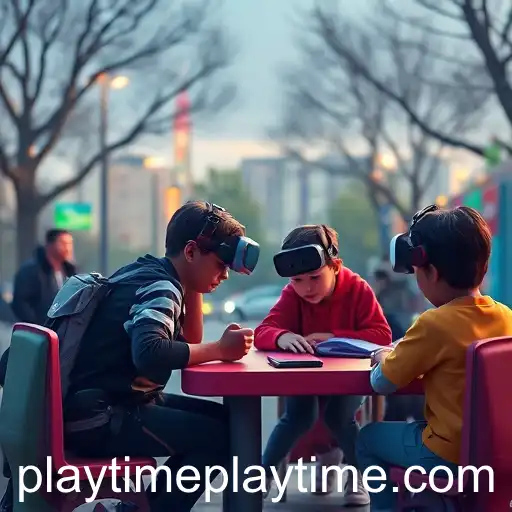
Exploring the Allure of Casual Games: A Playtime Revolution

In the ever-evolving landscape of digital entertainment, casual games have emerged as a dominant force, attracting millions of players worldwide. Characterized by their accessibility and simplicity, the allure of casual gaming lies not only in its ability to entertain but also in the unique way it redefines 'Playtime'.
Playtime in the context of casual games represents a departure from traditional, time-intensive gaming experiences. It signifies a more flexible interaction where players can engage at their leisure, play in short bursts, and still find gratification. Whether it's during a short commute, a lunch break, or while winding down before bed, casual games fit seamlessly into daily routines.
Casual games are designed for maximum approachability. They often feature intuitive controls, minimalistic designs, and forgiving mechanics that welcome players regardless of age or experience. This inclusivity enriches playtime, turning it into a universal concept rather than a rigidly scheduled activity. Titles such as 'Candy Crush', 'Angry Birds', and 'Crossy Road' are quintessential examples that have captured diverse demographics and sustained a loyal user base.
Moreover, the advancements in mobile technology and internet accessibility have contributed significantly to the rise of casual games. With smartphones becoming ubiquitous, gaming no longer requires specialized equipment; a simple download enables immediate access to a world of entertainment. Playtime is instantly transformed into an engaging, interactive experience that is always within reach.
Social integration is another aspect that magnifies the appeal of casual games. Many titles encourage players to connect with friends or share achievements on social media platforms, enhancing the sense of community and competitiveness. This social layer adds depth to playtime, creating shared experiences and fostering a sense of camaraderie among players.
Despite their seeming simplicity, casual games often employ sophisticated design elements to keep players engaged. Developers meticulously craft levels, challenges, and rewards systems to ensure that playtime remains compelling over time. This balance between ease of use and strategic depth keeps players returning, eager for the next challenge or achievement.
The future of casual games looks promising, with ongoing innovations in technology likely to lead to even more immersive and inclusive experiences. As virtual and augmented reality technologies evolve, we can anticipate a new dimension of playtime where casual gaming becomes even more integrated into our daily lives.
In conclusion, casual games and the concept of playtime are inseparably linked, representing a modern approach to leisure that caters to the fast-paced world we live in. Whether as a brief escape, a social connector, or a relaxing pastime, casual games offer something unique to everyone, promising endless fun and satisfaction.
Digital Playtime: Revolutionizing Online Fun

Exploring the evolution of playtime in the digital era, highlighting recent trends and technological advancements in online gaming.
2026-01-12
Playtime Transformed: The Future of Gaming

Discover how the gaming industry is evolving and the role of 'Playtime' as a pivotal aspect in this transformation.
2026-01-11
The Evolving Landscape of Digital Playtime

An in-depth look at how digital playtime is defined and evolving in the online gaming industry in 2026.
2026-01-10
The Evolution of Playtime: Transforming Digital Engagement in 2026

Exploring how 'Playtime' has redefined the digital gaming landscape in 2026 through technology and innovation.
2026-01-09






